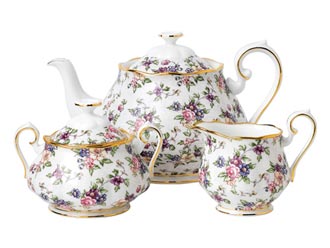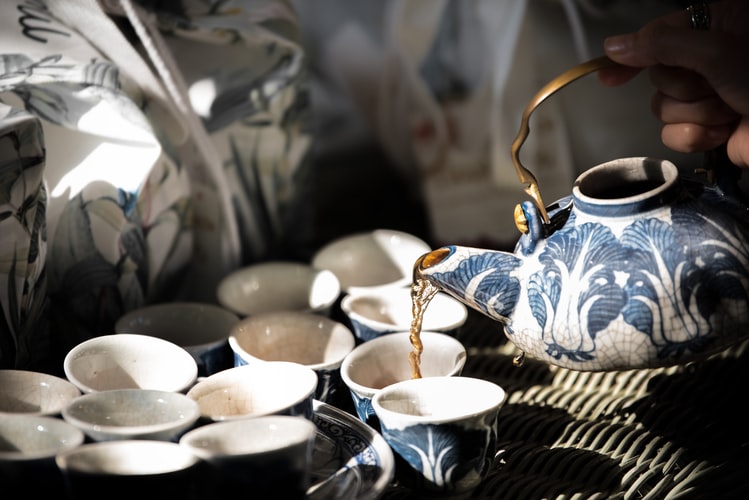Savour every sip of tea you can get. It may be your last. This may seem like one of your worst nightmares at the present time, but there is every possibility that it may soon turn into a stark reality. Very soon, the cup that cheers, will disappear and become extinct as a result of global warming. Climate change is putting the much-loved cuppa at risk as extreme weather and rising temperatures hit tea-growing countries, a report warns.
Imagine getting up in the morning and being told you can’t have any tea anymore because it’s no longer available. Good Heavens! Imagine mornings without tea, evenings without tea and all those other in-between times without tea. Nothing could be more dreadful than that. But the fact that this is a real and imminent danger cannot be wished away. The world will have to sit up and do something, after all what would life be without that refreshing, comforting cup of tea.

Sometimes, my morning cuppa carries me away in a swirl of beautiful memories. Mostly it has to do with tea and the beautiful city of Calcutta. It was 1975, I think. My younger sister Nina, had just received an interview letter from the Tea Board, Calcutta. They were looking for hostesses for some of their promotional expos in Singapore, Malaysia and Japan. My parents thought it would be a good thing to go along as an escort.

She never got through interview; the French oral and written test was stiff. But when you’re young and carefree – I was just 21 and Nina 19 – nothing can get you down. We felt happy and so lucky to be able to spend a whole week in Calcutta – a place full of romance, history, a kind of a mystery that needs to be solved, over and over again. Funny how tea can make your thoughts meander from one thing to another.
The total tea consumption of the world is 3,000,000 tons a year. In 1990, it was recorded as 2500,000 tons. That means 50,000 tons consumption has grown in 10 years. India is the world famous tea consuming country. People in India drink approximately 6,200,000 tons tea every year. Next biggest tea consuming country is China, then England, and Japan. Approximately 1,400,000 tons tea are consumed in Japan every year. However, if we compare the amount of tea drank by each person, people in England drink the tea most. Then Morocco, Quate, Turkey, and Qatar. Japanese people drink about 1/2 to 1/3 amount tea compare to above listed countries.
Britain and Ireland drink more tea per person than any other country in the world, with Kenya alone producing half the black tea drunk in Britain. The British consume 60 billion cups per year, according to available statistics. That’s more than 900 cups a year for every man, woman and child in Great Britain.
India among largest tea growers
India ranks among largest tea producers in the world. In the early 1820s, the British East India Company began large-scale production of tea in Assam. They also introduced a separate ‘tea-time’, an hour ahead of Indian Standard Time to improve efficiency and output in the tea gardens of Assam. This was prompted by the very early sunrise in the north-east of India.
In both the United Kingdom and the Republic of Ireland, tea-drinking blends and preferences vary. Although typically served with milk, it is also common to drink certain varieties black or with lemon. Sugar is a popular addition to any variety. Everyday tea, such as English breakfast tea, served in a mug with milk and sugar is a popular combination.

It is interesting to note how the marriage of a queen in the 17 th century is directly responsible for giving the world one of its most endearing and utterly refreshing social custom – Tea drinking; any excuse or reason is good enough to drink it, and no excuse is good enough for not drinking it.
When Catherine (23) of Braganza in Portugal, arrived to wed King Charles II of England in 1662, hardly anyone in that country drank or had any real knowledge about tea. If at all there was ever a passing mention of tea, it was solely as some sort of obscure medicinal drink from China.
Catherine, on the other hand had been a regular tea drinker. In Portugal it was part high fashion and genteel etiquette on the part of the nobility to drink tea. It did not take much time for the newly-married Queen together with her entourage of ladies-in-waiting, to introduce tea-drinking as a regular ritual in the royal household.
Tea-drinking a royal pastime
Deeply in love with his wife, King Charles saw no harm in humouring the Queen with this little whim of hers. Soon the passion for tea had spilled beyond the confines of the royal household, as more and more of the nobility thought it was a good thing to do what the Queen does; but mind you, this was more of a patronising gesture than anything else. However, it would take a further two centuries before tea broke through the class barriers to become a truly egalitarian drink, accessible to the poorest of the poor of the working class.
Originally an upper-class drink in Europe, tea gradually spread through all classes, eventually becoming a common drink. It is still considered an important part of the British identity and is a prominent feature of British culture and society.
Thomas Garway, a tobacconist and coffee house owner, was the first person in England to sell tea as a leaf and beverage at his London coffee house in Exchange Alley in 1657.
The history of European interactions with tea dates back to the mid-16th century. The earliest mention of tea in European literature was by Giambattista Ramusio, a Venetian explorer, as Chai Catai, or “Tea of China”, in 1559.
As the British continued to import more and more tea throughout the 18th century, tea slowly went from a respectable commodity consumed by the well-mannered classes in domestic rituals to an absolute necessity in the British diet, even among the poor working classes.
Tea for every occasion
The British firmly believe that no task, from studying to data entry to putting up a shelf, can be accomplished without a good cuppa. Some even measure the length of a task by how many cups of tea are required to finish it (painting a wall might take three cups, say, while researching for your thesis could be five plus
Research suggests climate change will slash optimal conditions for tea production in Kenya by a quarter (26 percent) by 2050, and areas with only average growing conditions will see production fall by 39 percent by mid-century.
Changing climate could also affect the taste of tea, as increasing amounts of rain produce inferior quality leaves, and reduce the compounds that make the brew beneficial to health.
Climate and environmental experts warn that Kenya, the world’s biggest exporter of black tea, faces more erratic rainfall, making floods and droughts more common. Other major tea-producing countries including India, Sri Lanka and China, the world’s largest producer whose green tea is growing in popularity in Britain, also face rising temperatures and new weather extremes.
Kenyan tea farmers say they can no longer predict seasons anymore, temperatures are rising, rainfall is more erratic, more often accompanied by unusual hailstones and longer droughts which was not the case in the past. If this continues then it will make growing tea much harder and life for us extremely difficult.
Climate change poses a real threat to us but small-scale farmers are in no position to fix this problem by themselves. It needs a joint effort from developed countries who enjoy our tea abroad. The climate crisis affects people all over the world. In East Africa, where so much of our tea comes from, climate change is putting the livelihoods of the people who grow tea for us at risk.



